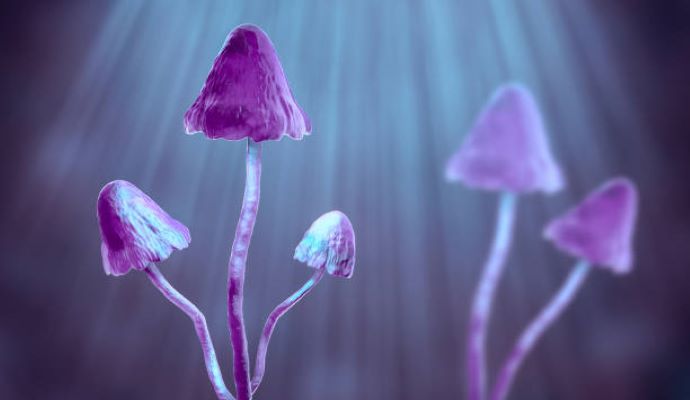A Single Dose of Psilocybin Can Reduce MADRS Score
In a study published in the New England Journal of Medicine, researchers found that a high single dose of psilocybin, while associated with adverse events, can reduce the MADRS score in patients with treatment-resistant depression.

Source: Getty Images
- BMC Psychiatry states that up to one-third of patients with major depressive disorder become resistant to treatment, otherwise known as treatment-resistant depression. In recent years, psilocybin and other psychedelics have been discussed as alternatives to SSRIs for addressing major depressive disorder in those with treatment-resistant depression. The New England Journal of Medicine published a study that found that a high single dose of psilocybin, while associated with adverse events, can reduce the Montgomery–Åsberg Depression Rating Scale (MADRS) score in patients with treatment-resistant depression.
This study was a phase II double-blind clinical trial. Patients were given a single dose of psilocybin at a concentration of 1, 10, or 25 mg. Patients also received psychological support alongside the medication. Before dosing, patients were scored on the MADRS. The score change between the baseline and three weeks after treatment was used to measure progress. The trial was conducted at 22 sites across ten countries between March 1, 2019, and September 27, 2021.
Patients were recruited if they met the diagnostic criteria for a single or recurrent episode of the major depressive disorder according to the DSM-5. According to the publication, approximately 79 patients received 25 mg of psilocybin, 75 received 10 mg, and 79 received 1 mg.
To start, most of the participants scored a 32 or 33 on the MADRS. The publication states that the 25 mg group saw a 12-point reduction in MADRS total score at three weeks. The 10 mg group saw a less significant 7.9 score reduction. Finally, the 1 mg group, used as the control, saw a MADRS score decline of 5.4.
Despite the ability to reduce the MADRS score, the 25 mg group also experienced a significant proportion of adverse side effects. About 84% of participants in this group had adverse effects, compared to 75% in the 10 mg group and 72% in the control group.
“In this phase II trial involving participants with treatment-resistant depression, psilocybin at a single dose of 25 mg, but not 10 mg, reduced depression scores significantly more than a 1 mg dose over three weeks but was associated with adverse effects. Larger and longer trials, including comparison with existing treatments, are required to determine the efficacy and safety of psilocybin for this disorder,” concluded researchers in the publication.
